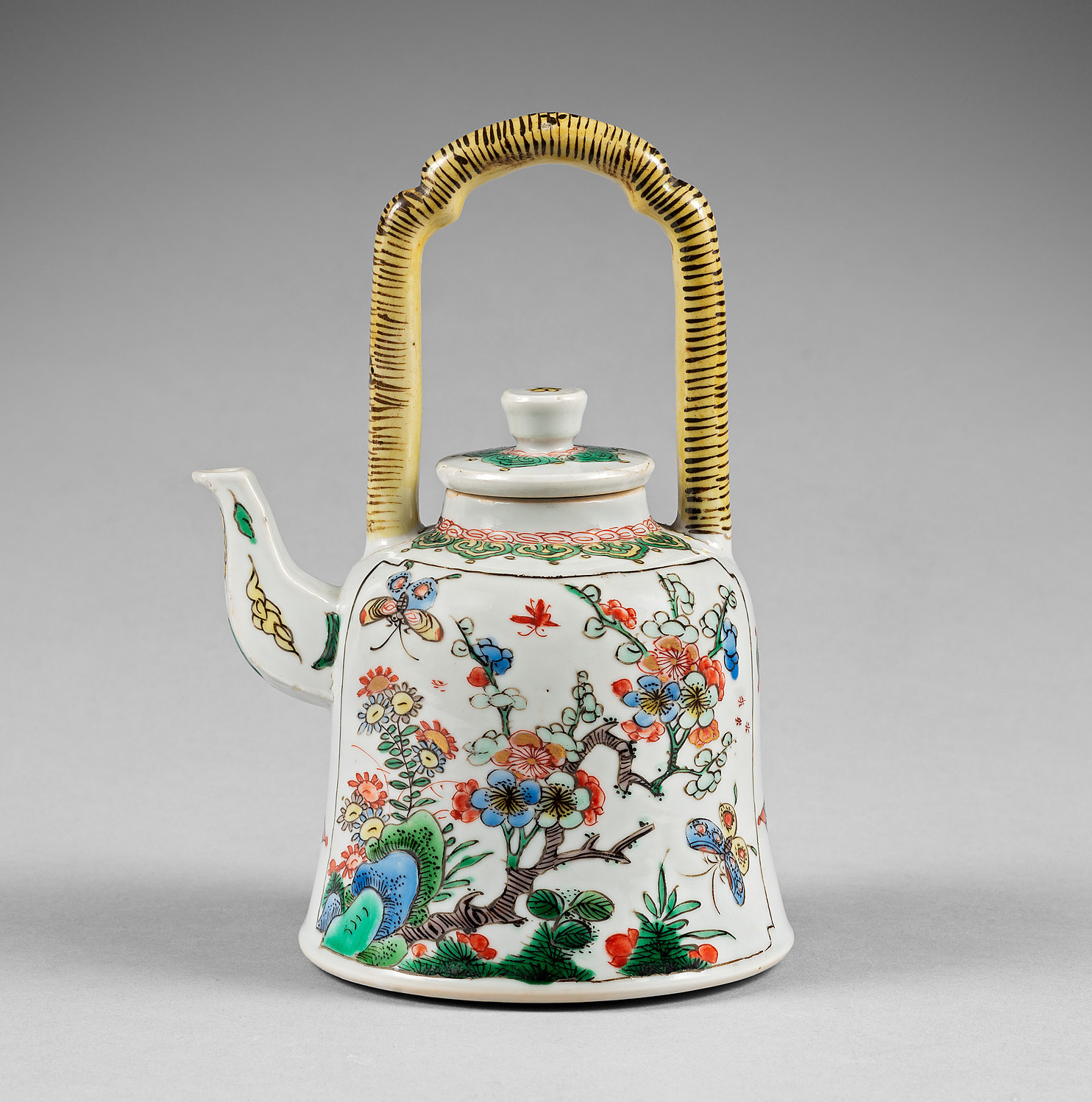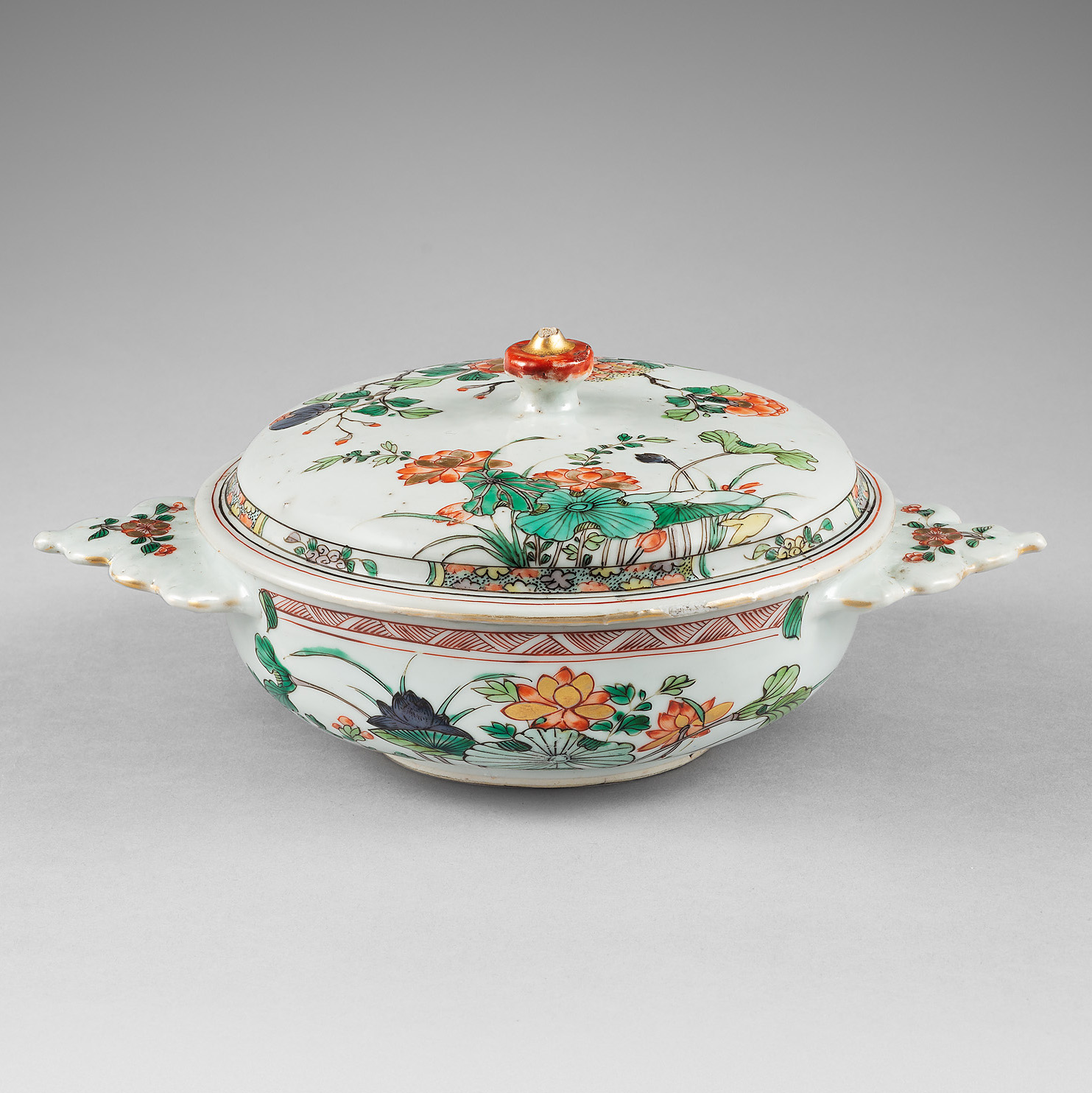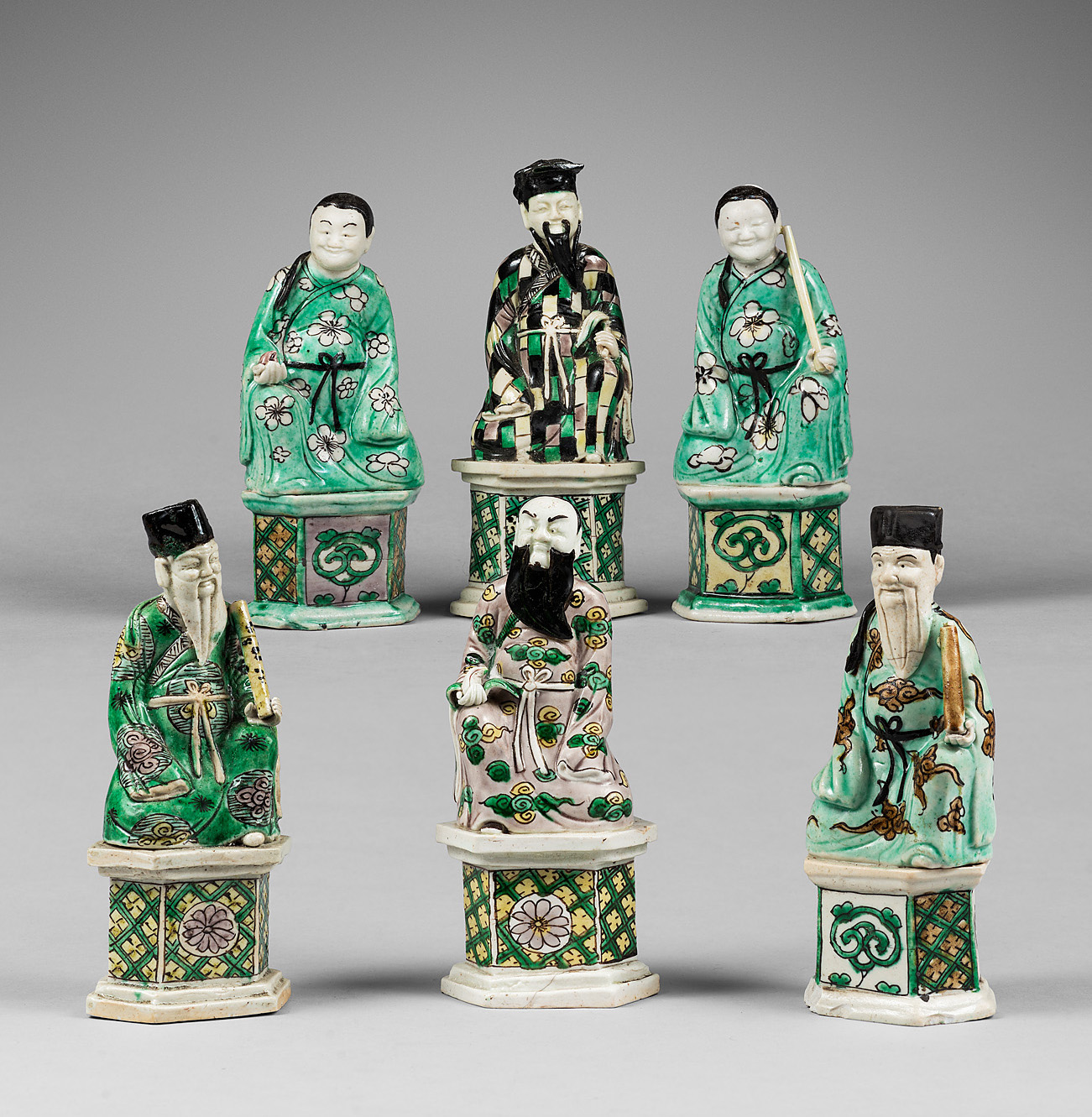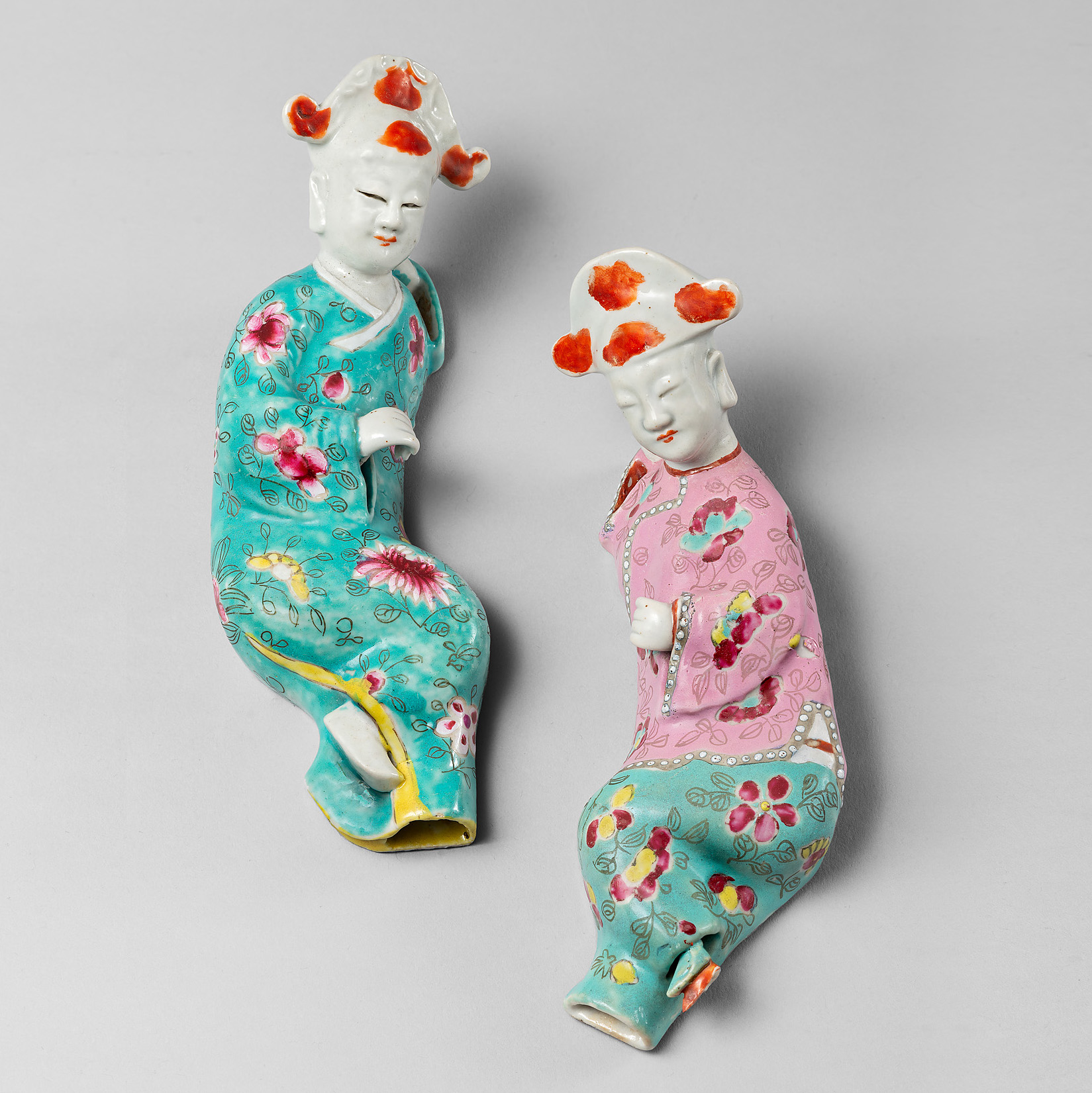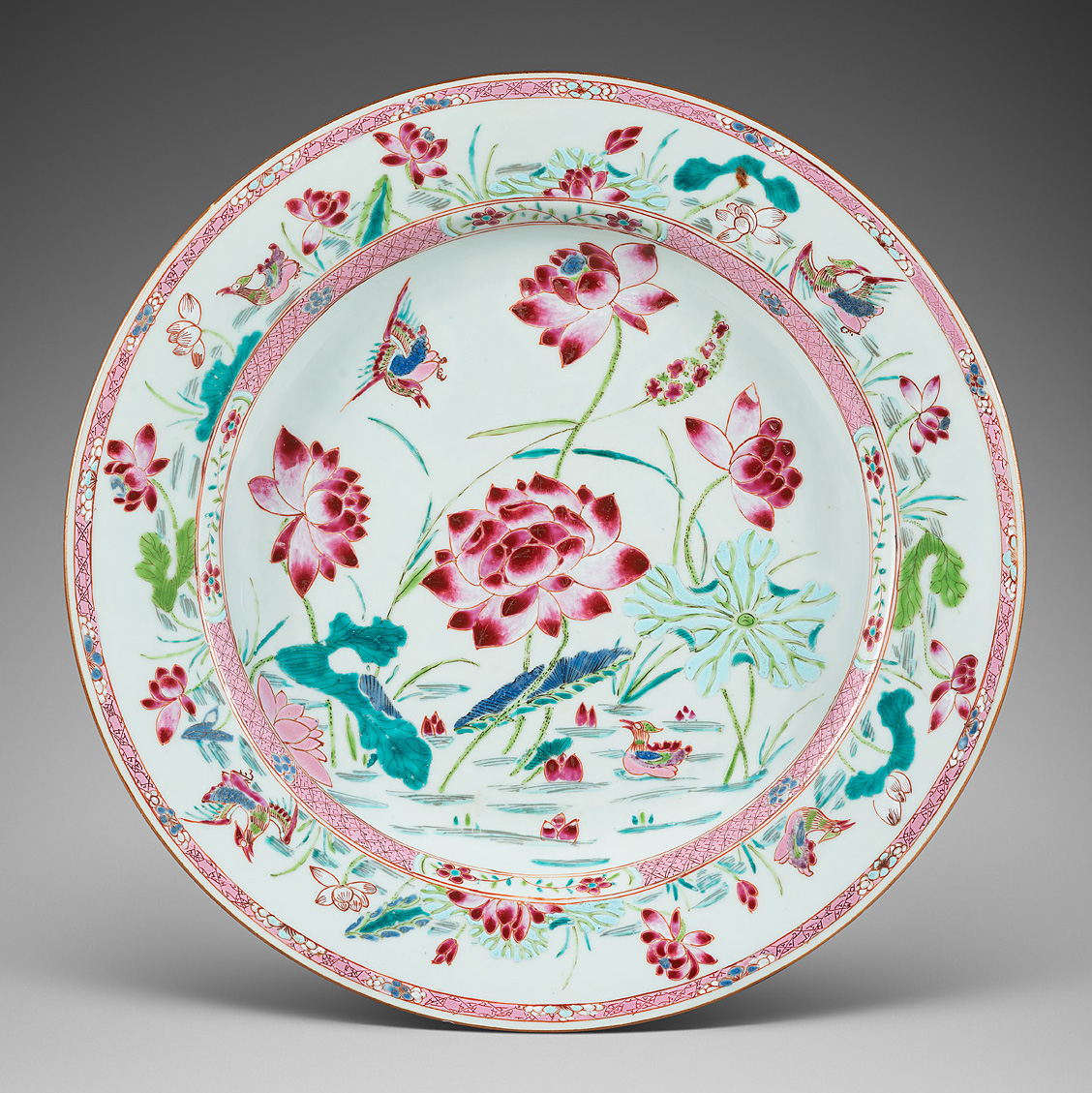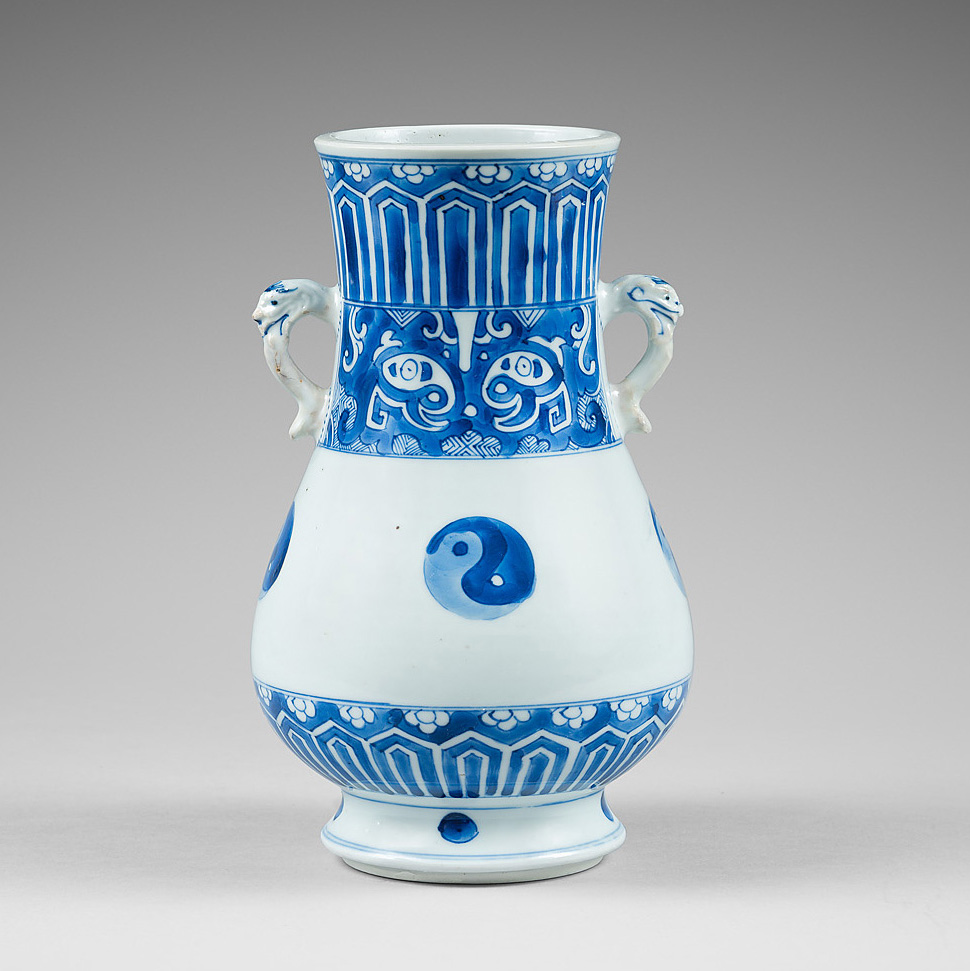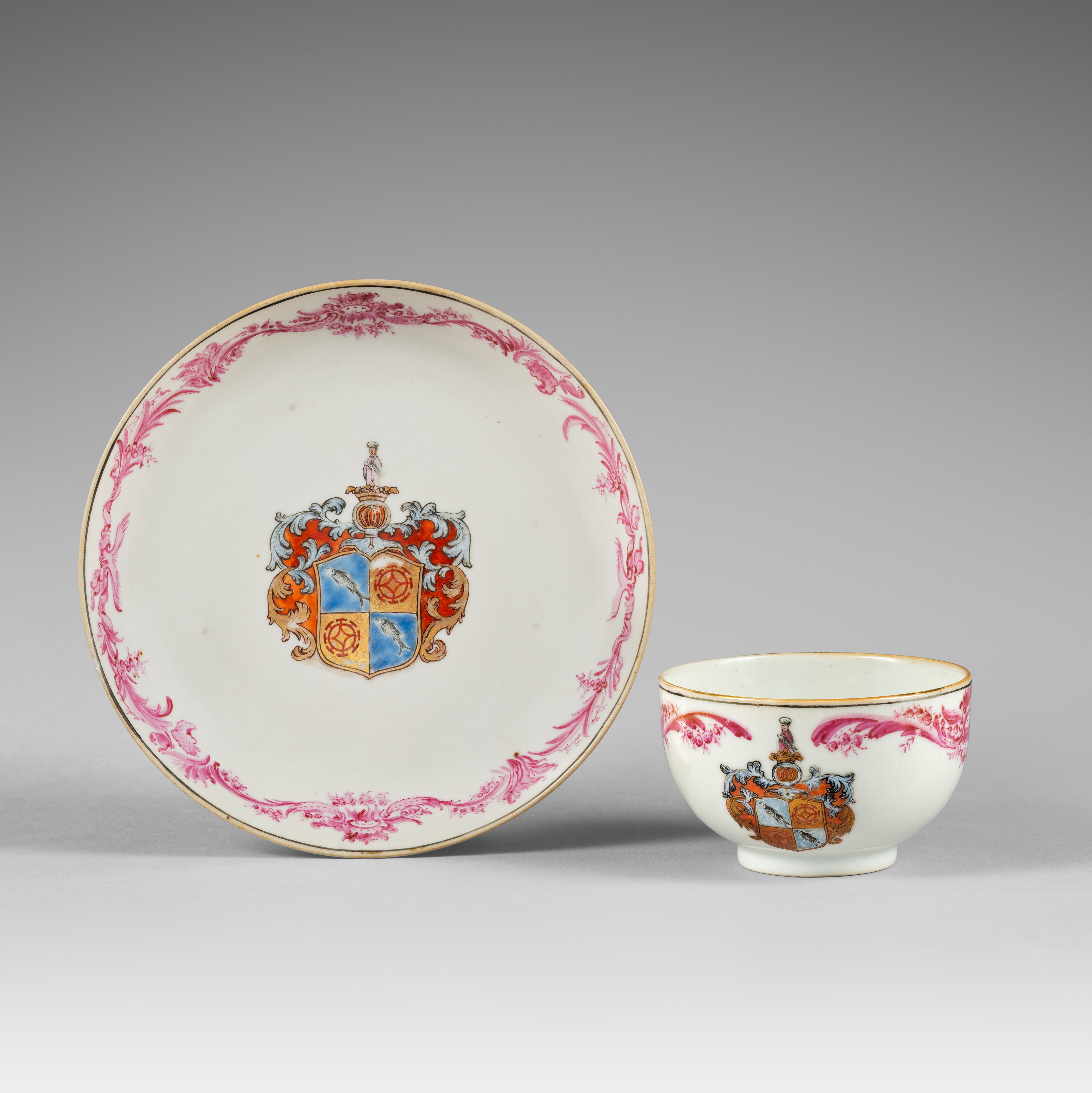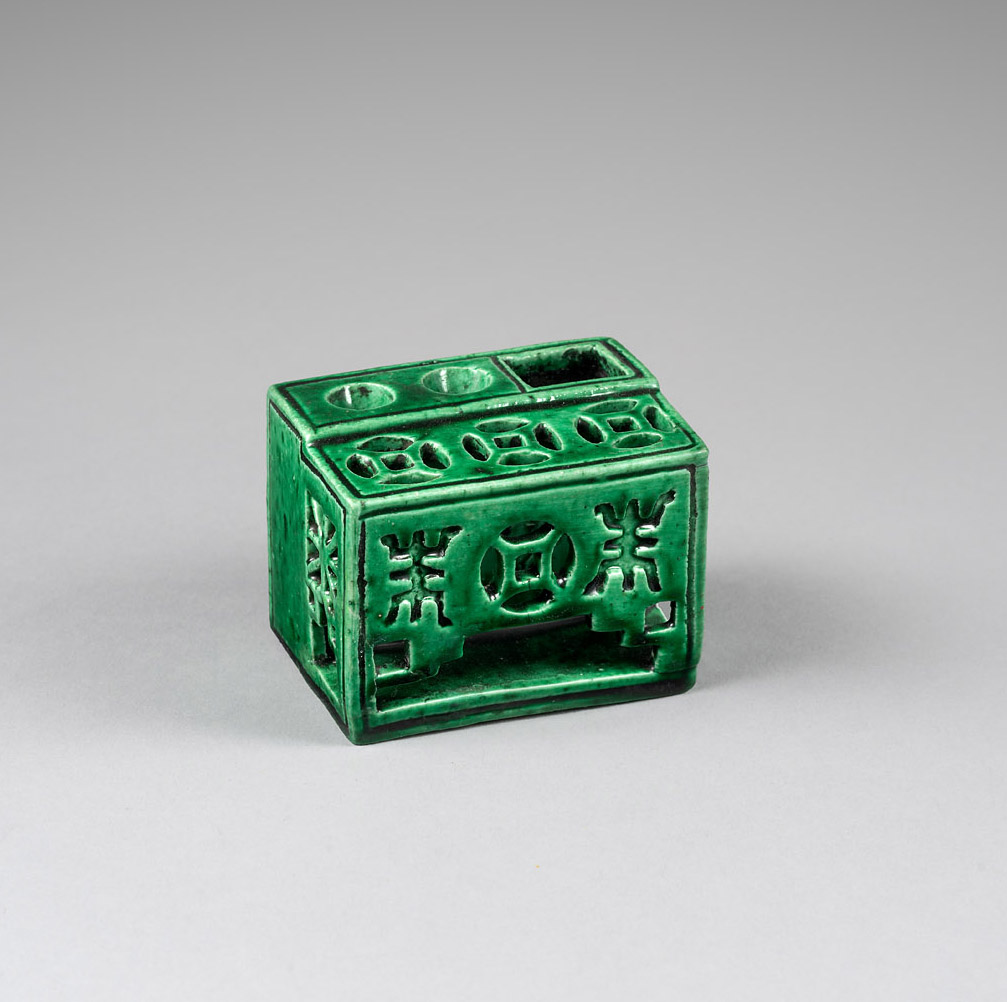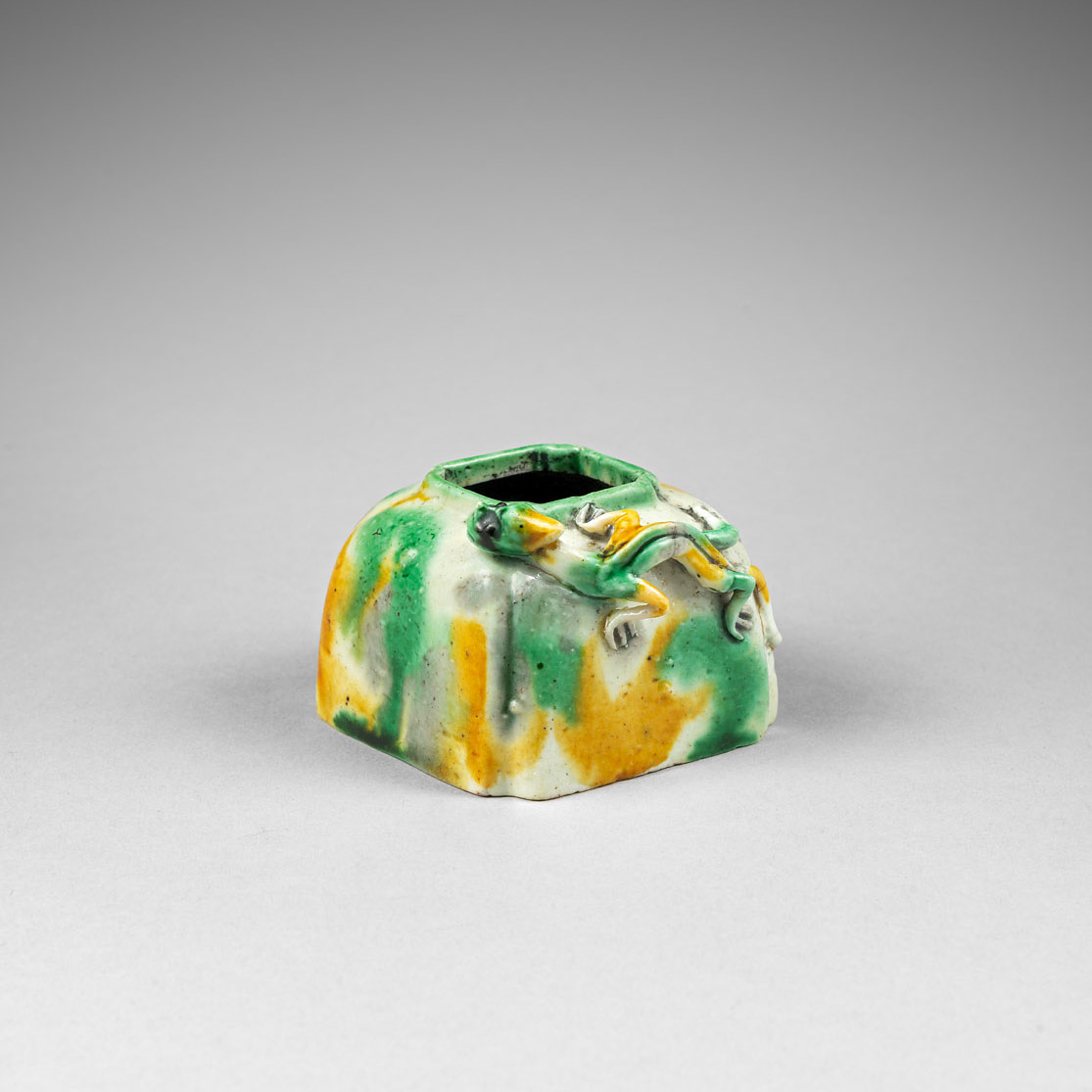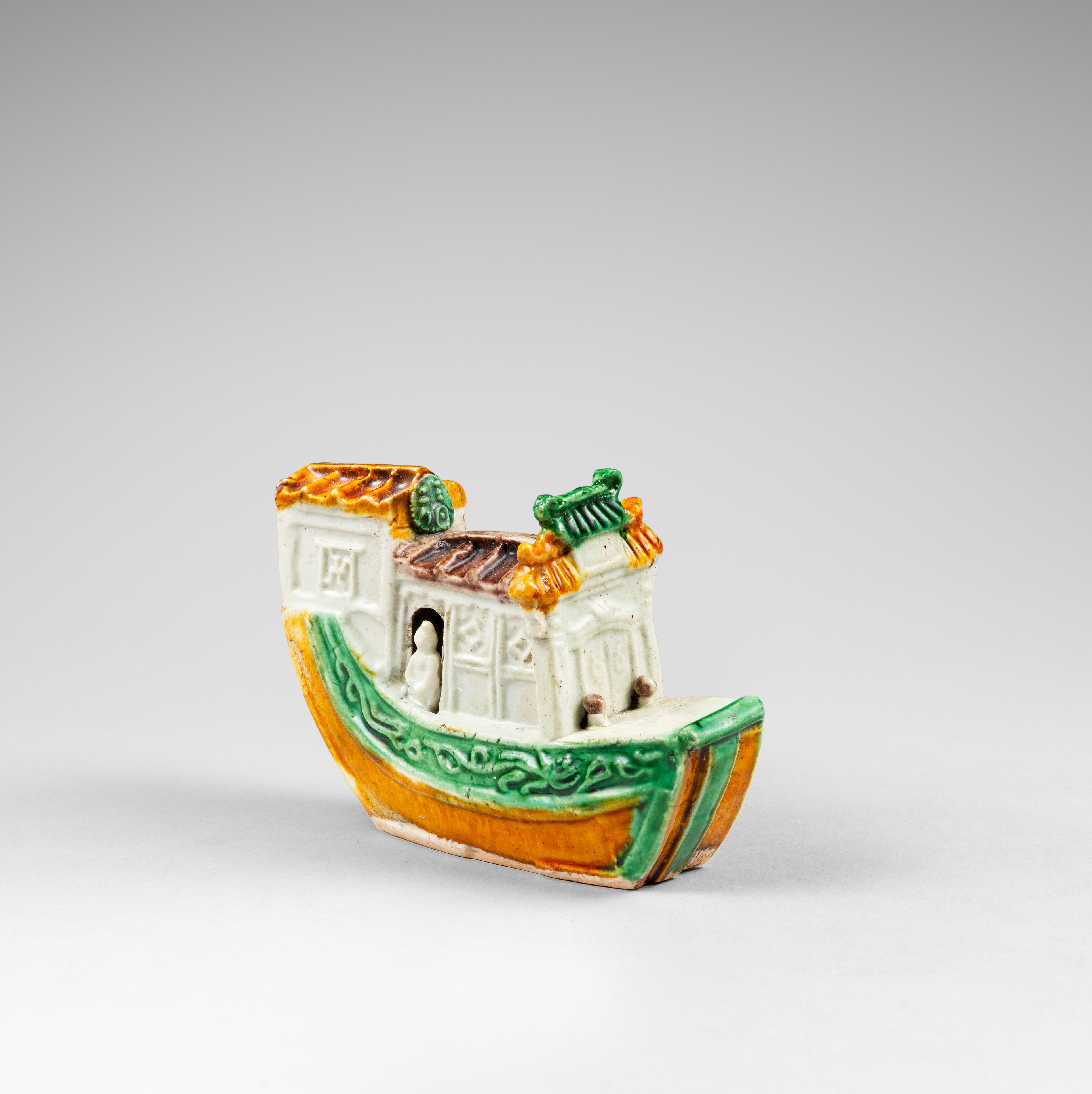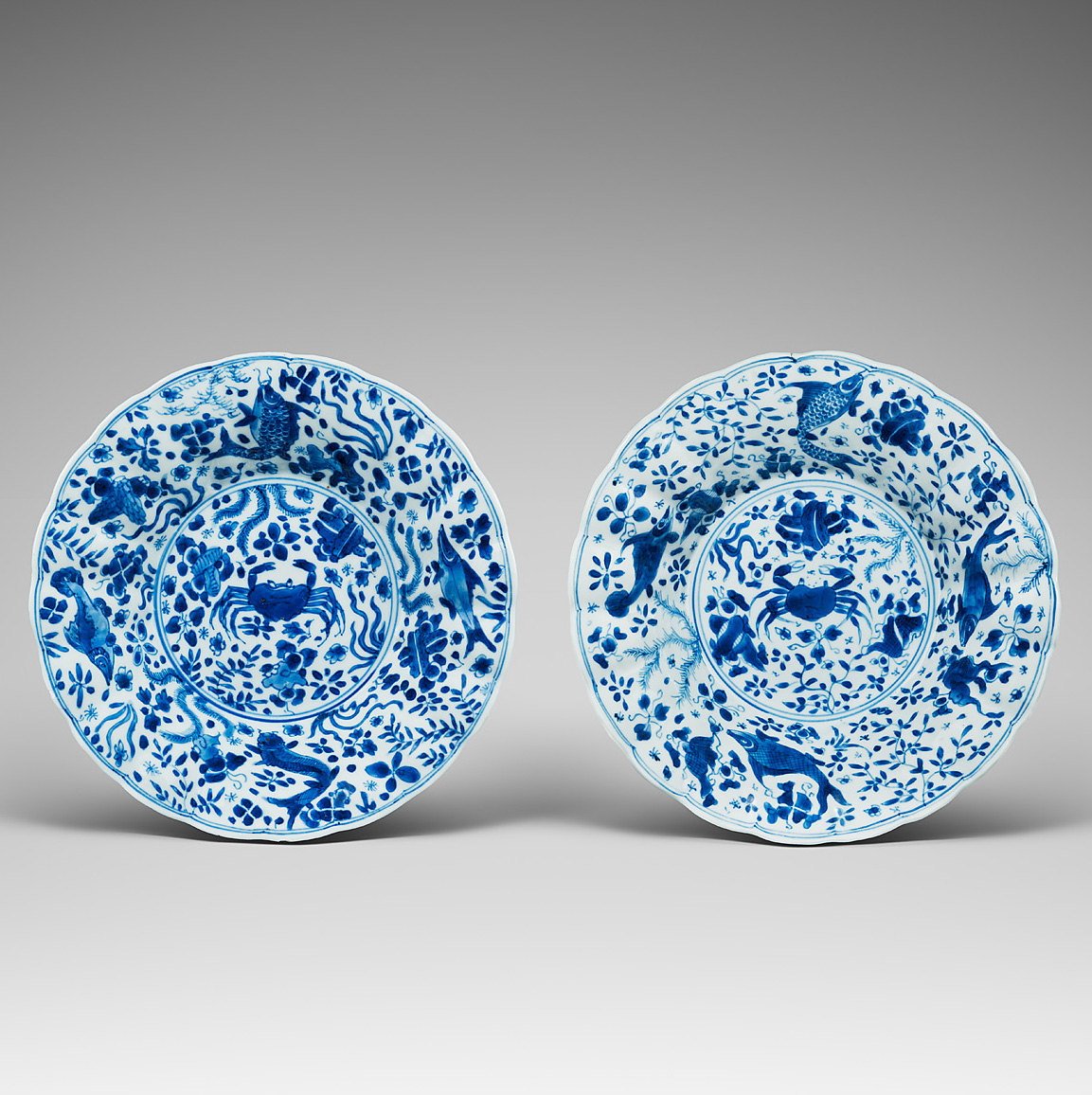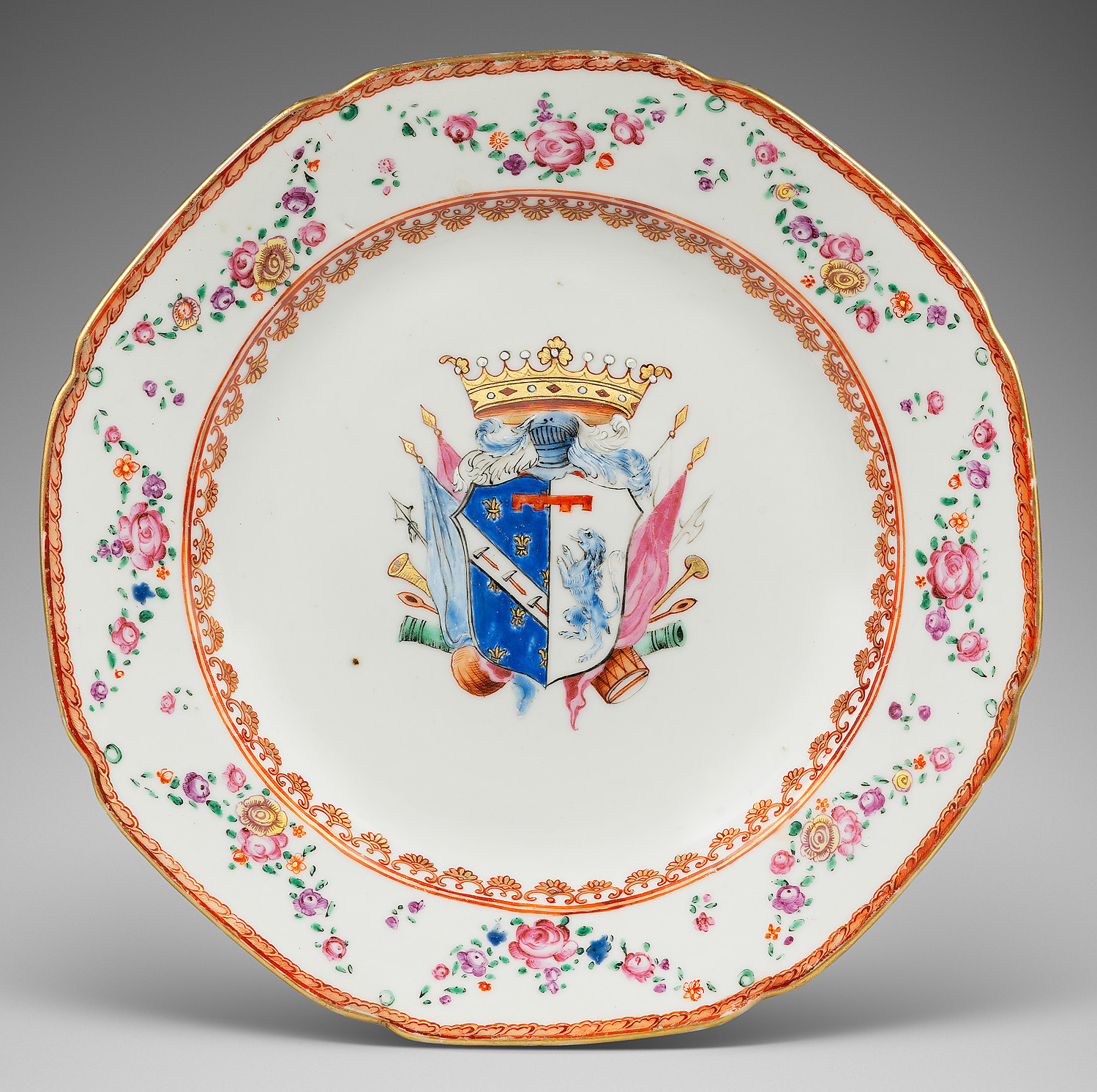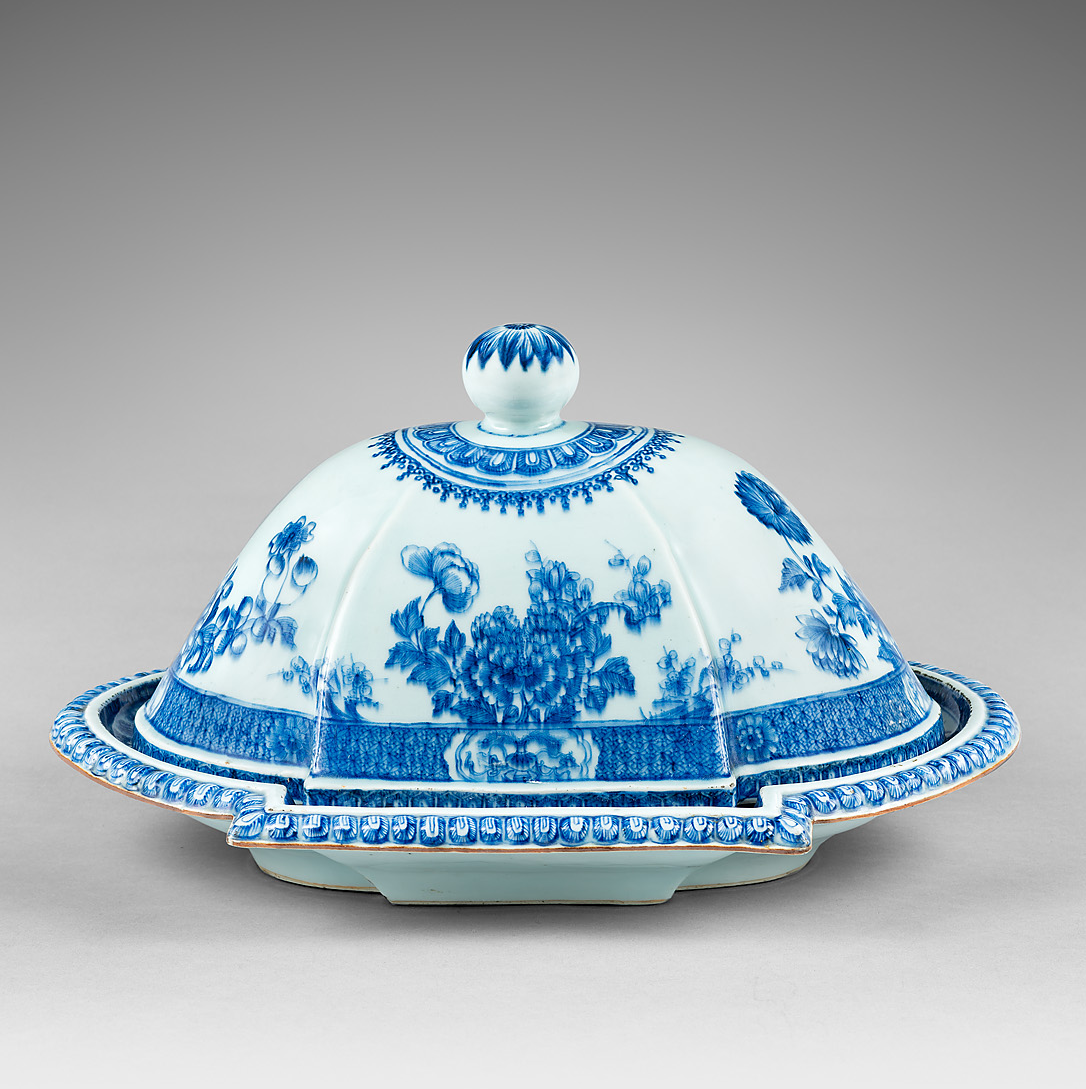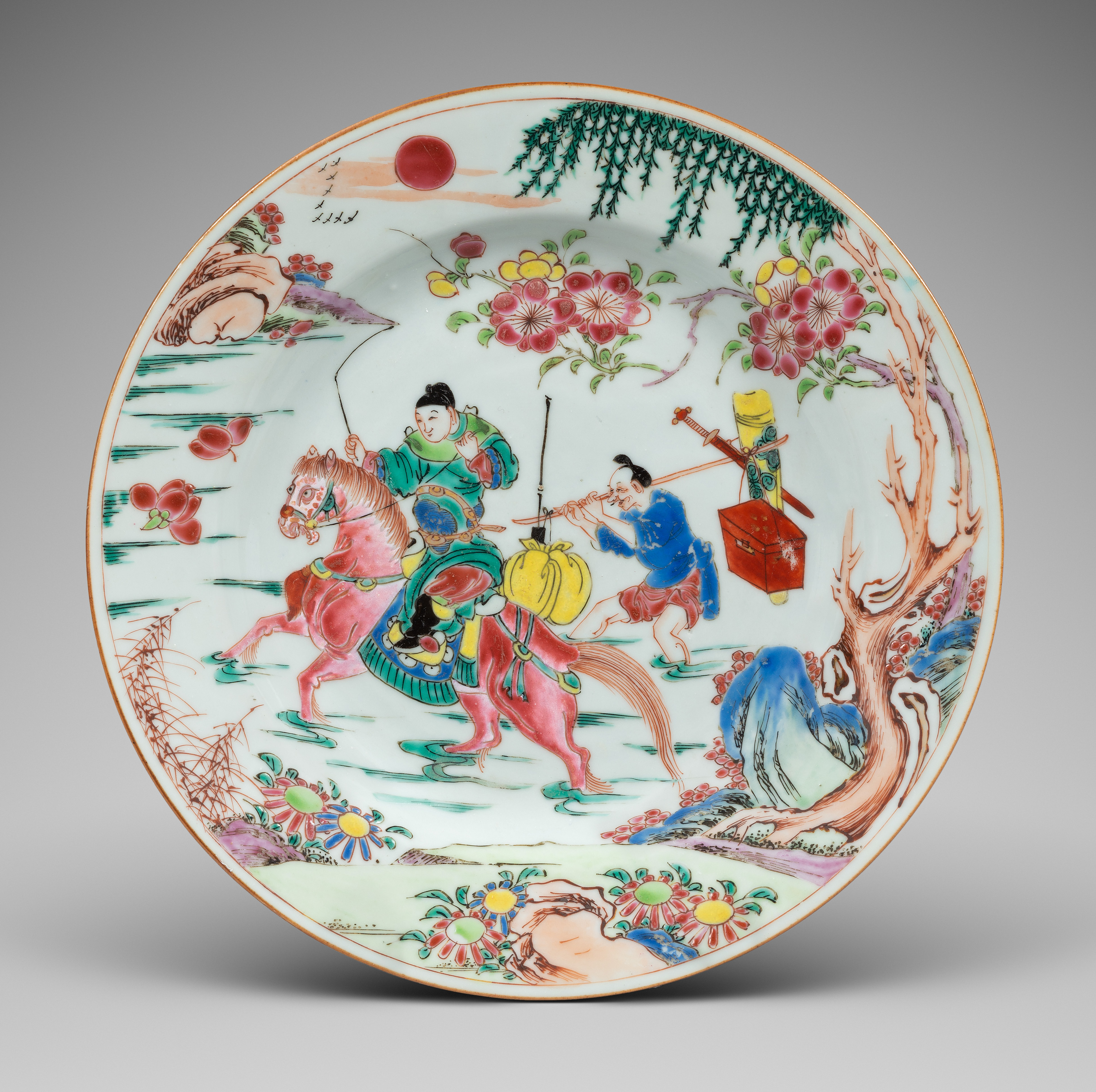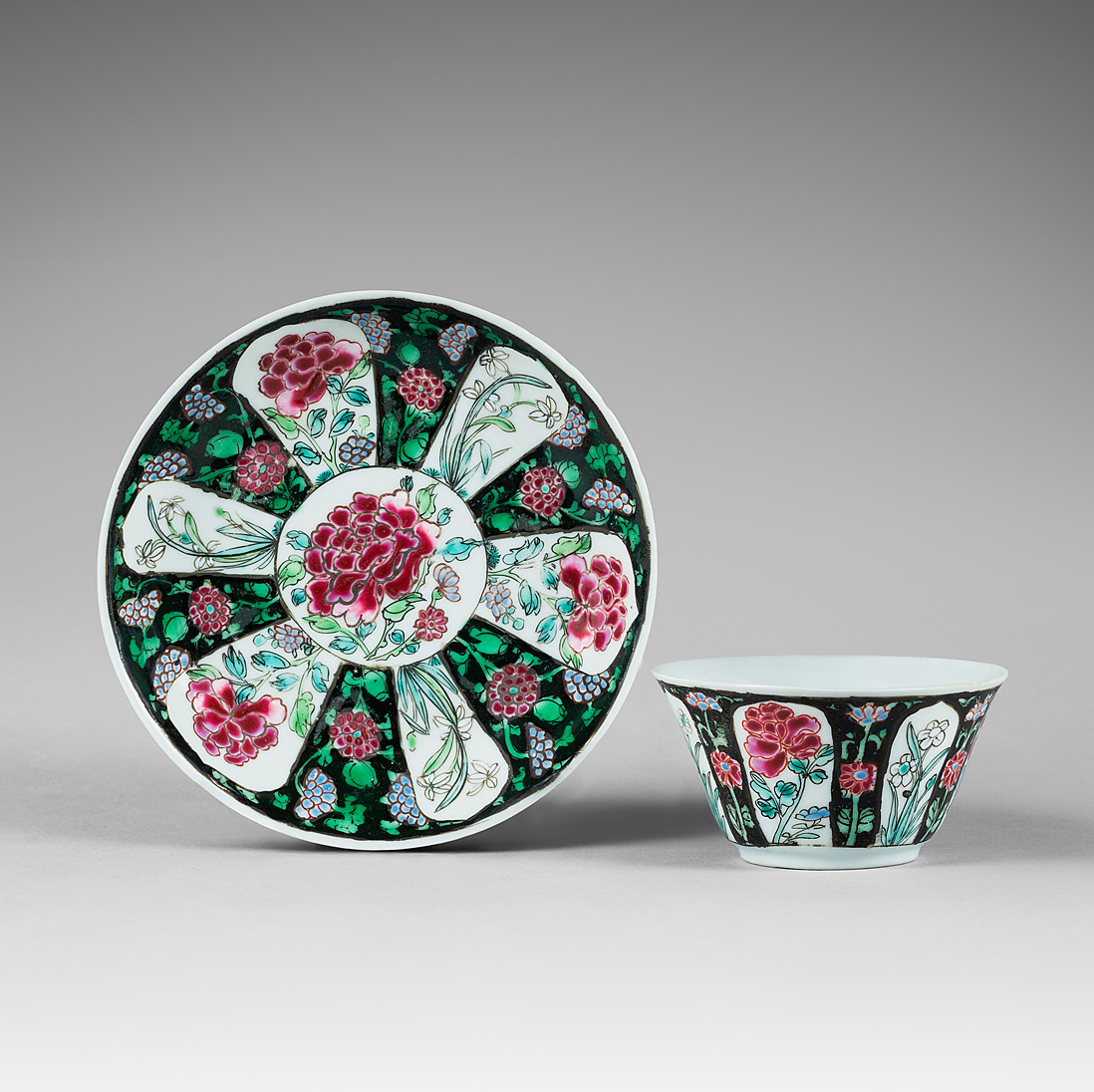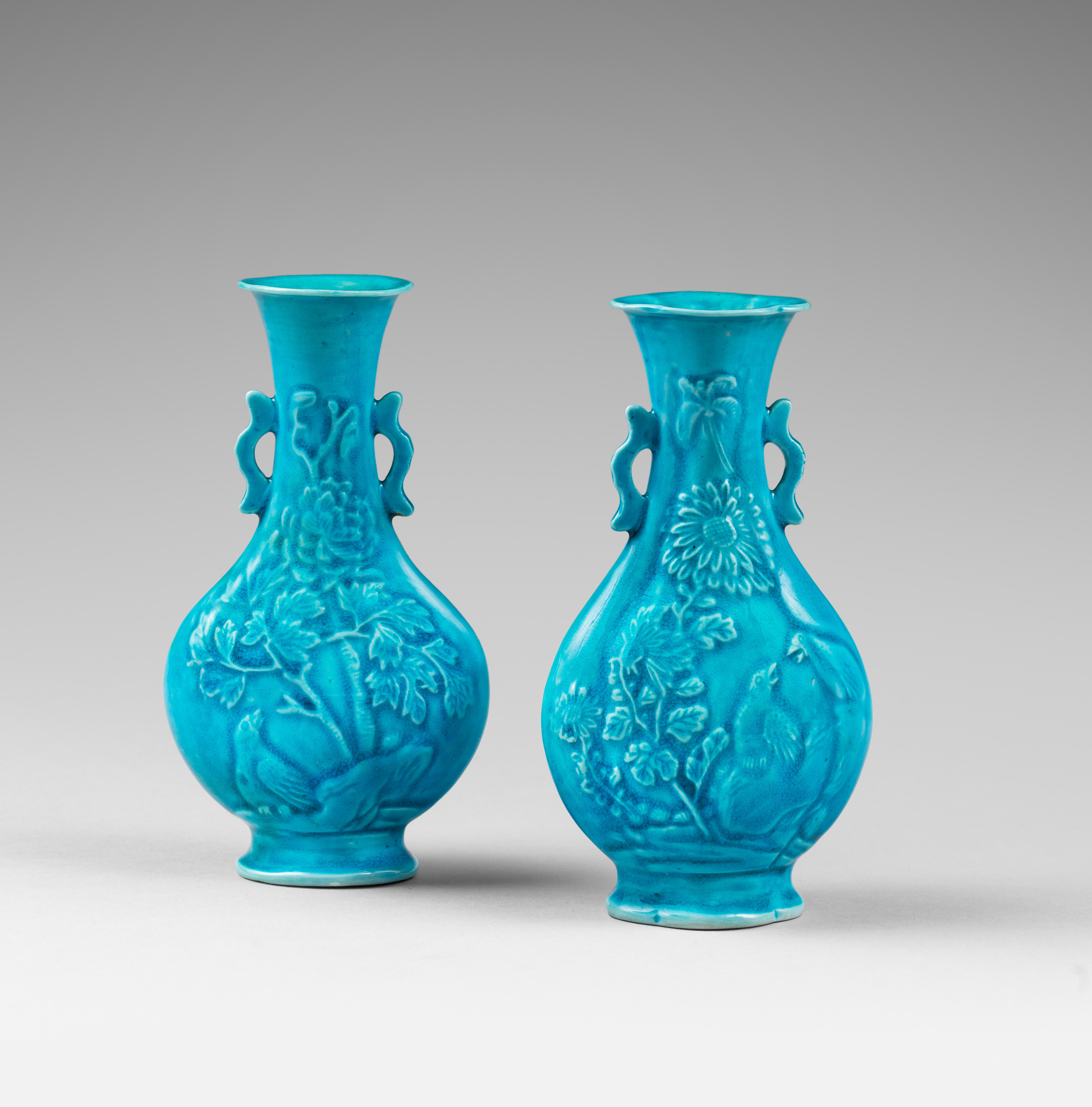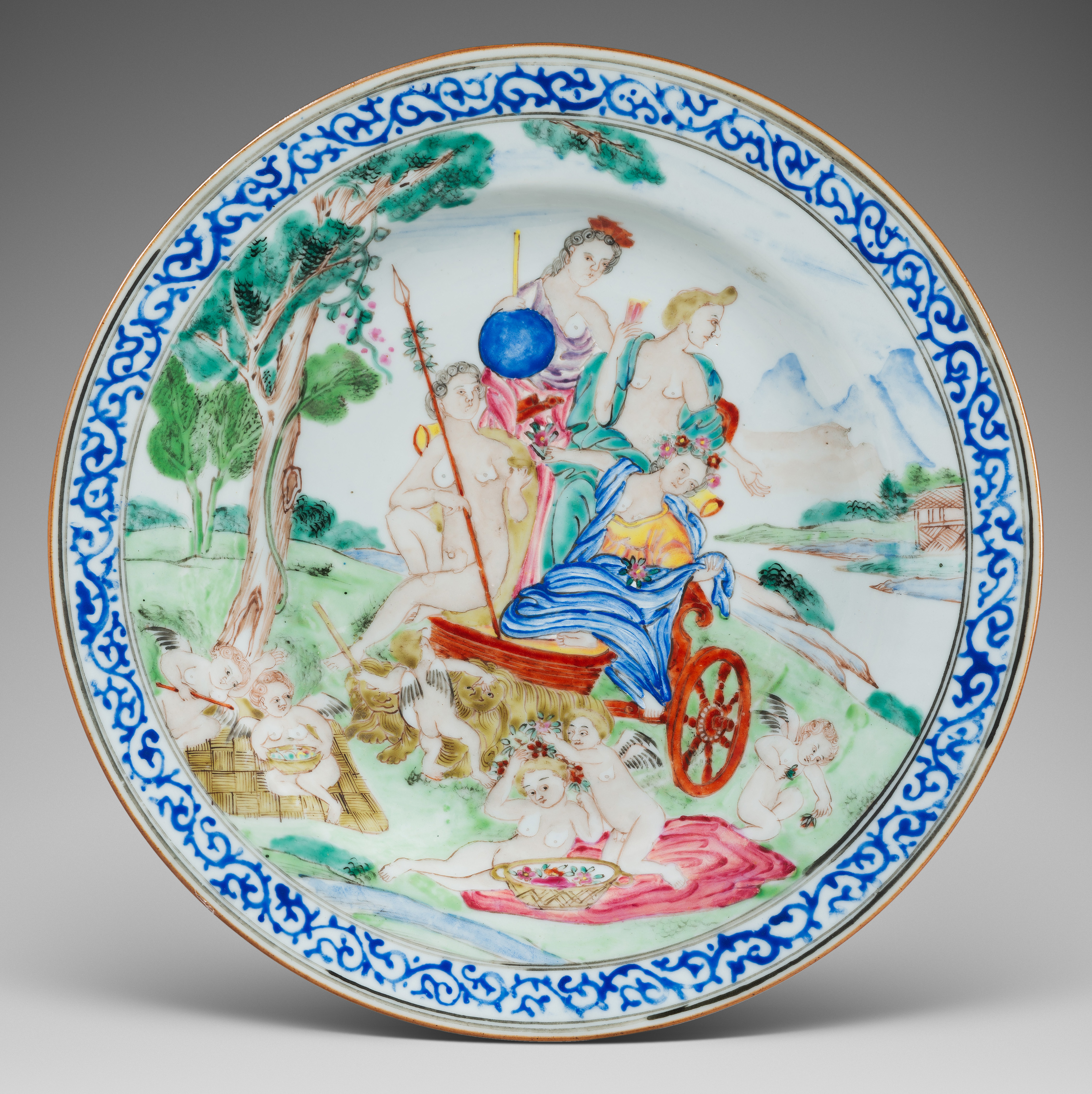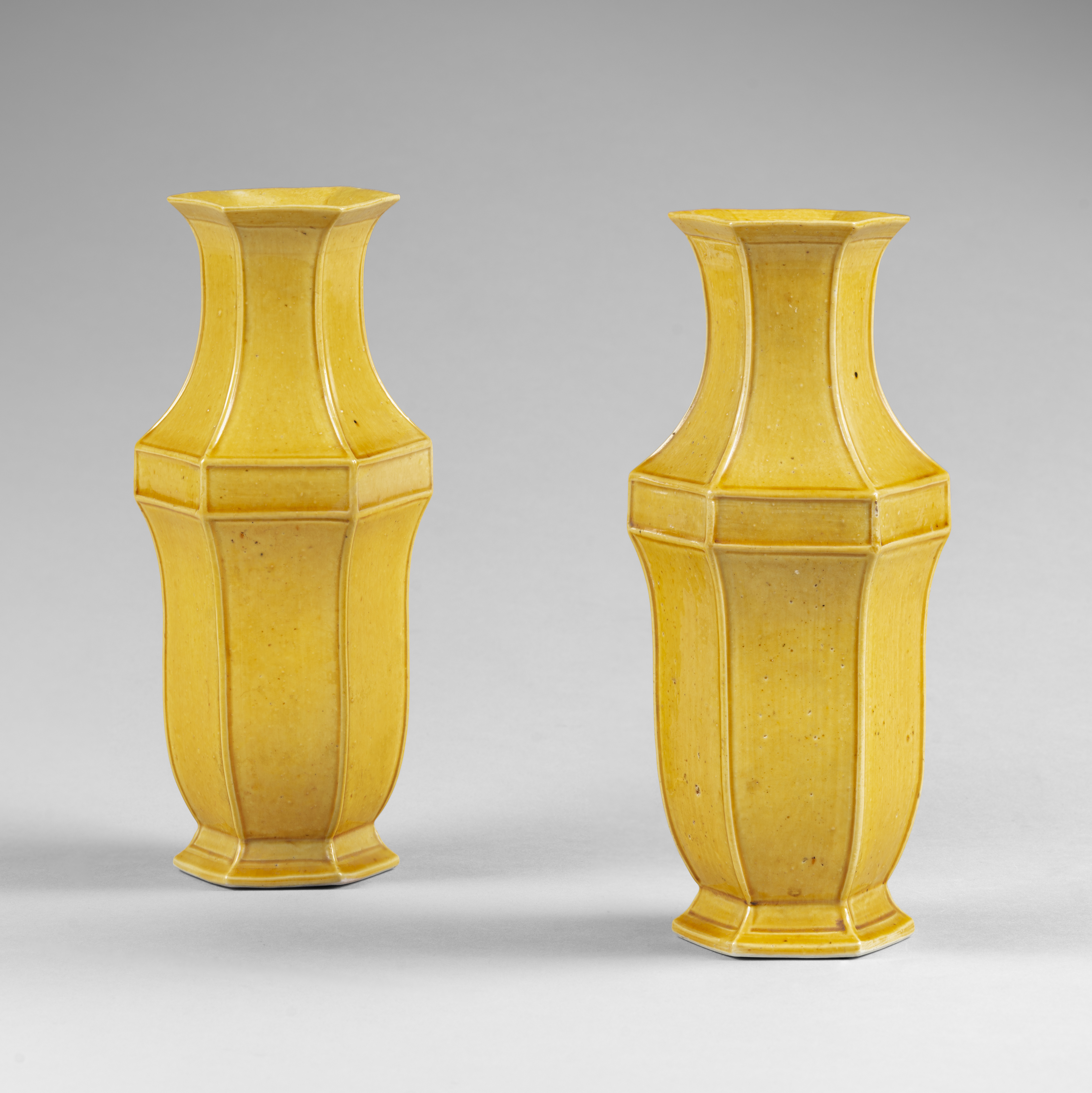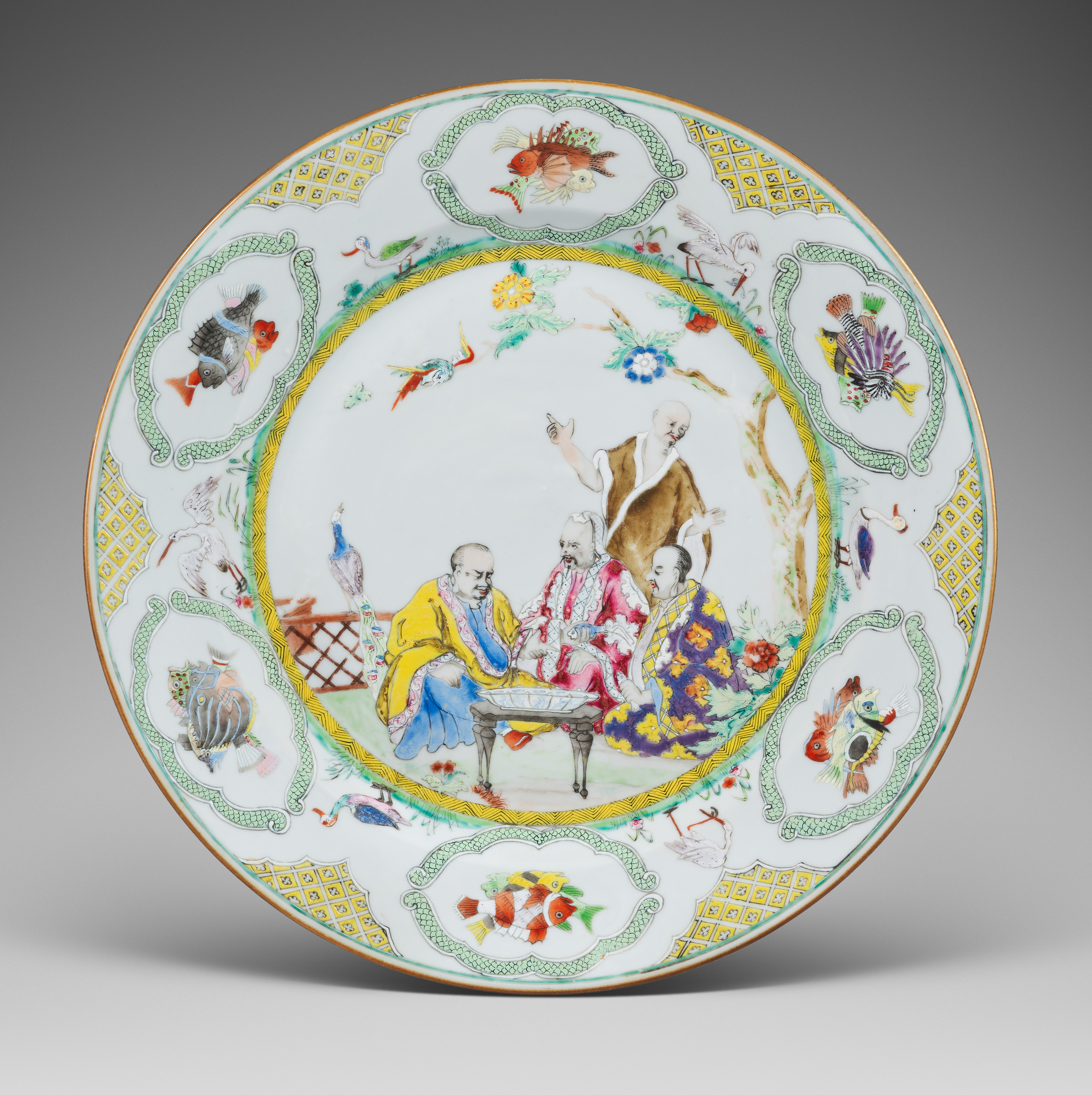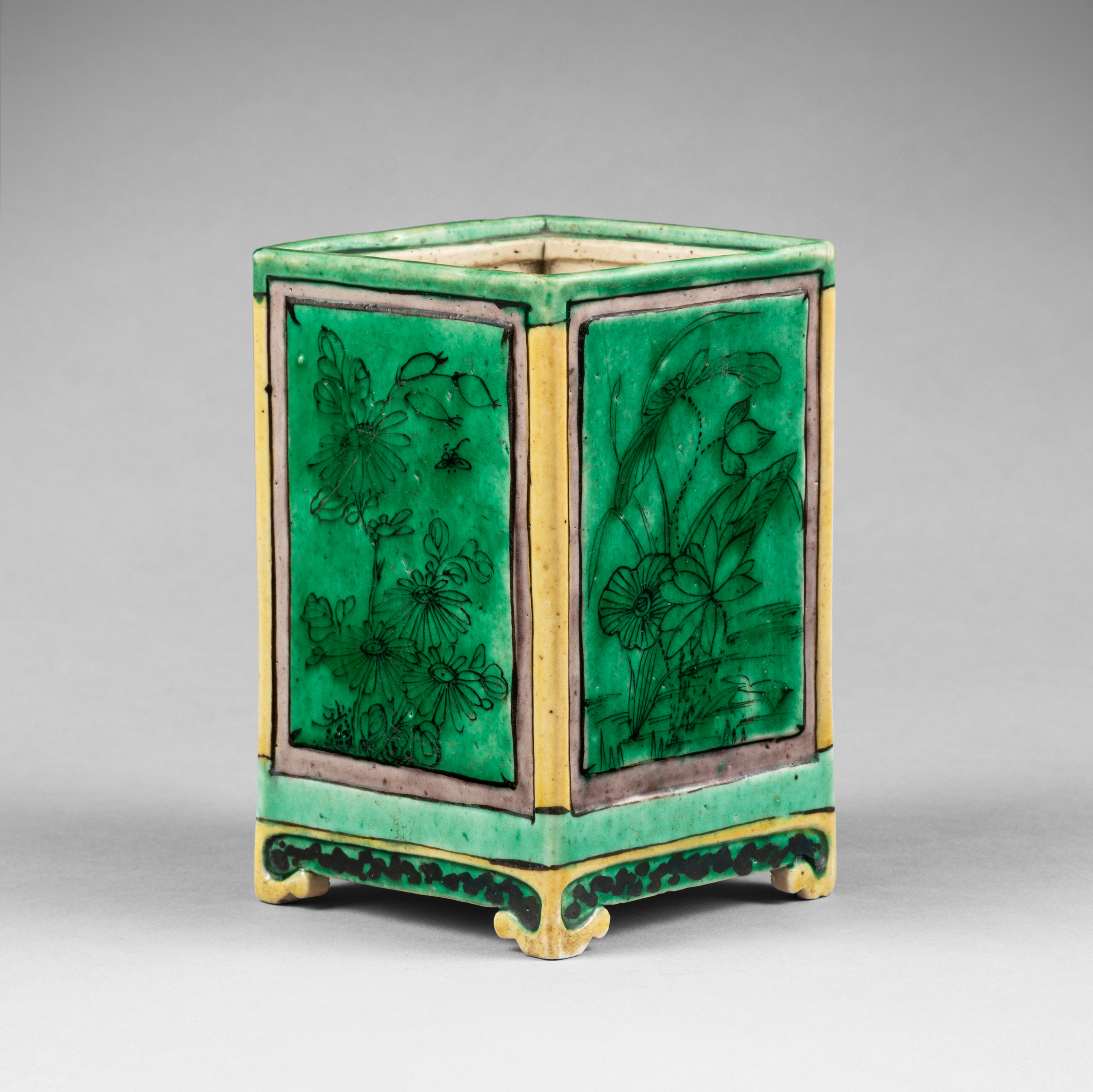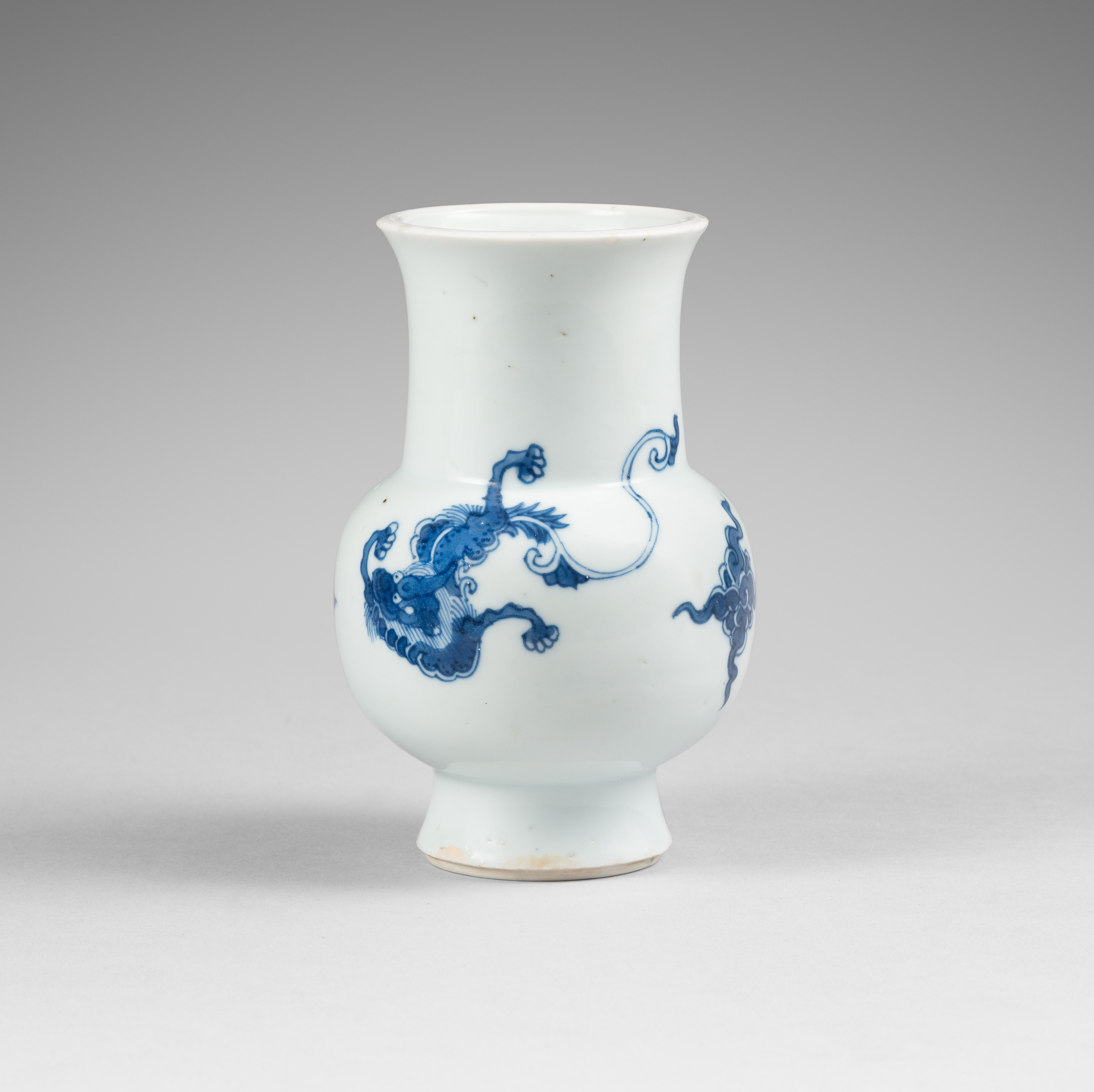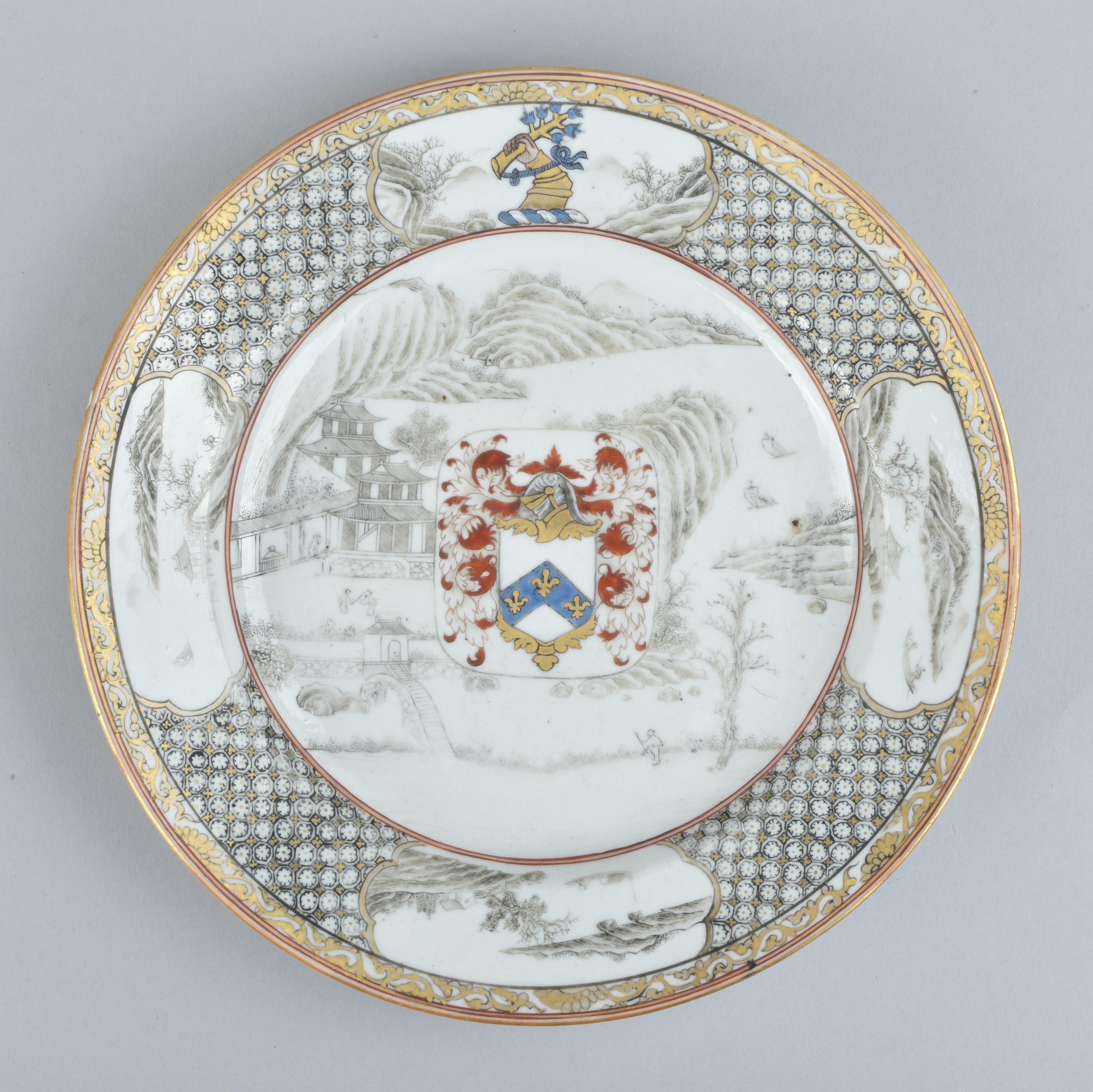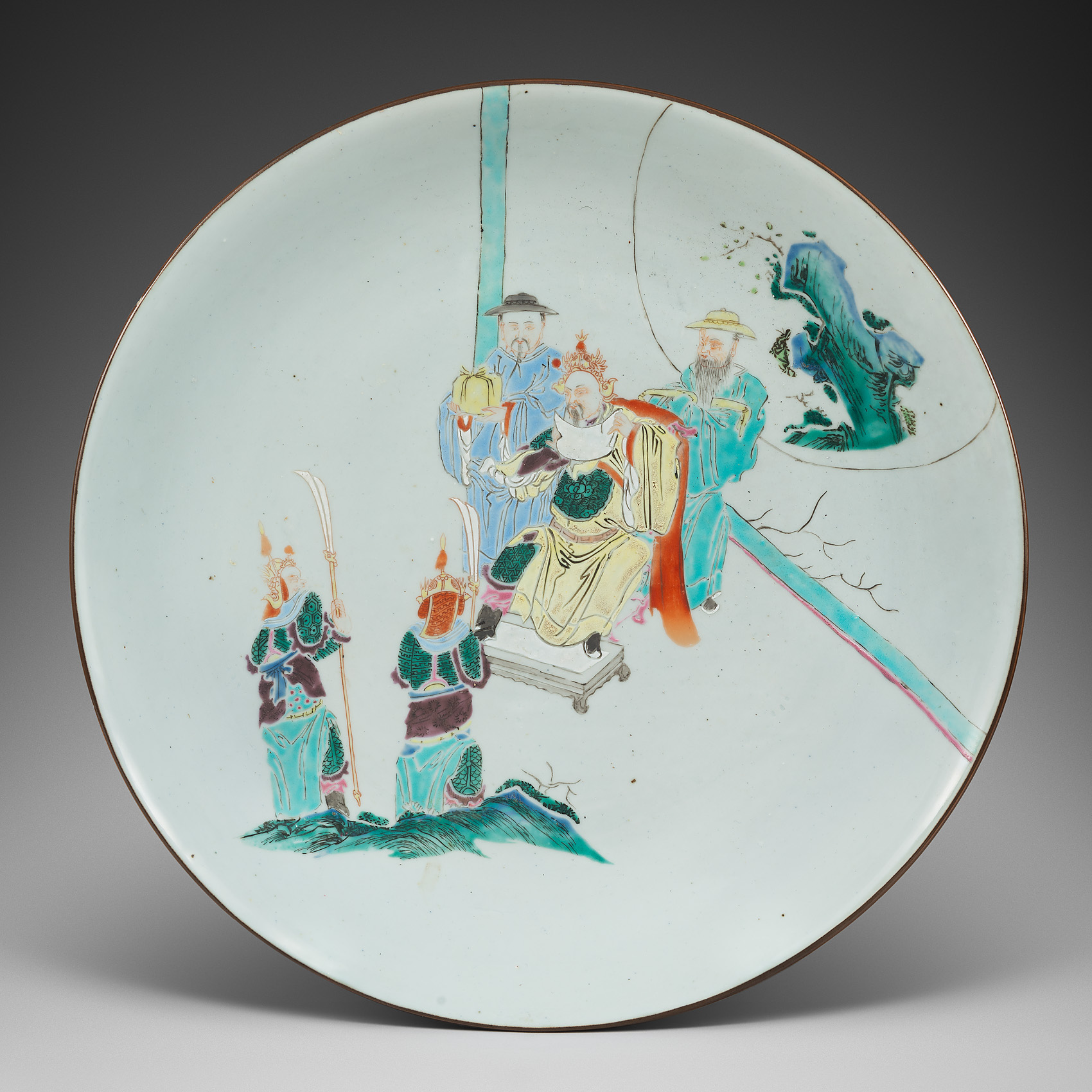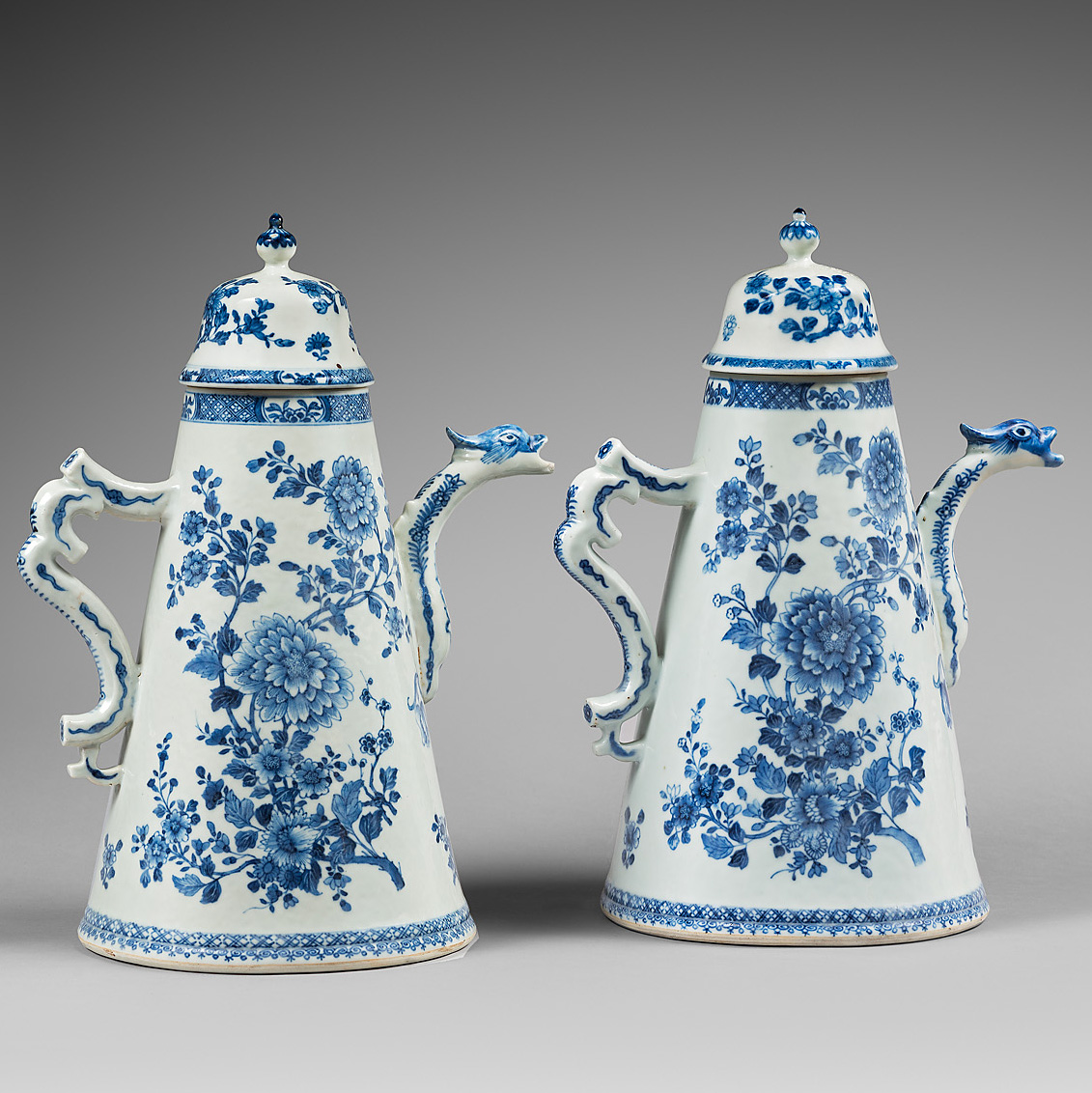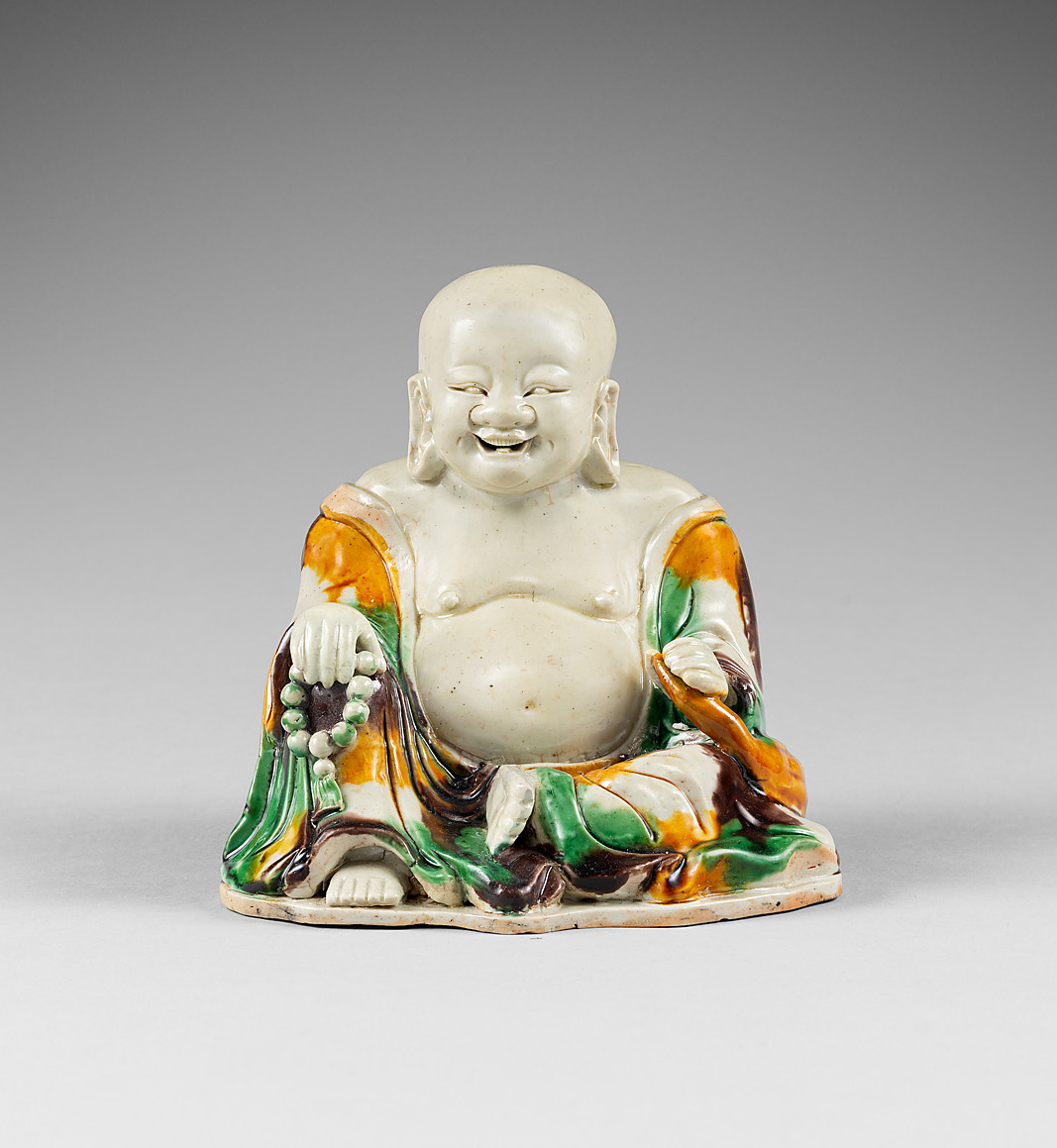
A large Chinese “egg and spinach” glazed biscuit figure of budai. Kangxi
The laughing, corpulent monk shown seated holding prayer beads in his right hand and the neck of his bag in the left, wearing loosely draped robes splashed in amber, green and aubergine that frame his naked torso, his face well modelled with a jovial expression.
- Country:
- China
- Period :
- Kangxi (1662-1722)
- Material:
- Porcelain (biscuit)
- Dimension:
- 5.51 in. x 5.70 in. (14 cm x 14.5 cm)
- Reference :
- E207c
- Status:
- sold
Notice
Budai is a Chinese deity. His name means “Cloth Sack”, and comes from the bag he carries. According to Chinese tradition, Budai was an eccentric Chinese Zen monk who lived during the 10th century. He is almost always shown smiling or laughing, hence his nickname in Chinese, the Laughing Buddha. In English speaking countries, he is known also as the “fat Buddha”. Chinese porcelain figures such as the present example would have been used in a family shrine offering prayers in China, but in the West they would be seen as exotic curiosities, sometime referred to as “Magot” or “Pagod”.


